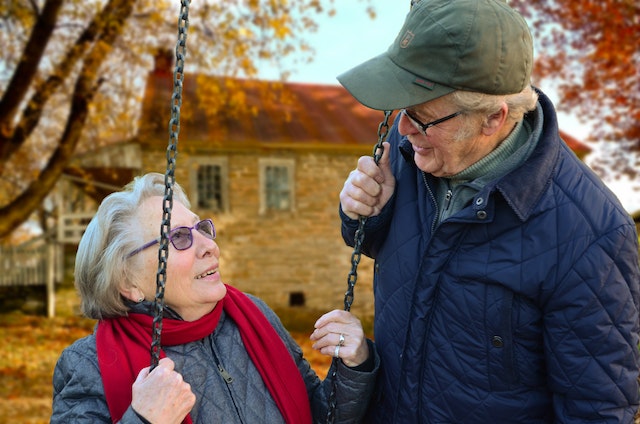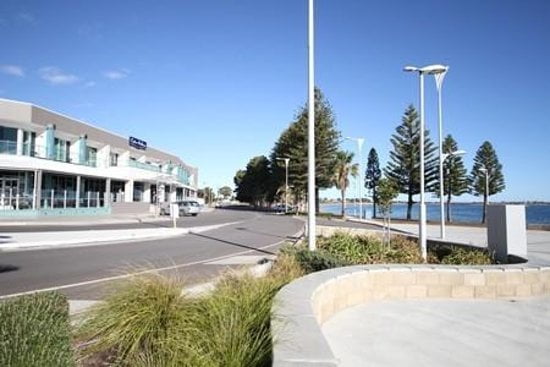Quality Healthcare: Accessing excellent medical care is vital for elderly individuals, encompassing essential components like routine health examinations, effective medication administration, and efficient scheduling of specialist consultations. It is highly valued to have facilities that prioritize the well-being of residents while being staffed with qualified healthcare professionals. At Nundah Aged Care, our commitment lies in delivering exceptional healthcare services, guaranteeing that residents can avail themselves of proficient healthcare experts who offer regular health check-ups, adept medication management, and seamless coordination of specialist appointments.
Personalised Care Plans:

Aged care facilities that develop individualised care plans based on each resident’s unique needs and preferences are often preferred. Personalised care plans ensure that residents receive tailored support and services that cater to their specific requirements.
Skilled and Compassionate Staff: Aged care facilities with well-trained, empathetic, and compassionate staff members who provide respectful and dignified care are highly valued. The presence of staff who build meaningful relationships with residents can greatly enhance the overall experience.
Enriching Activities and Programs: Facilities that offer a wide range of social, recreational, and therapeutic activities promote engagement, mental stimulation, and overall well-being among residents. Access to exercise classes, art therapy, music programs, cultural events, and outings can significantly enhance the quality of life.
Nutritious and Varied Dining Options: Aged care facilities that prioritise nutrition and provide balanced, appetising meals that cater to dietary needs and preferences are highly appreciated. Offering a variety of menu choices and accommodating special dietary requirements can contribute to residents’ satisfaction.
Supportive Social Environment: A sense of community and social connection is vital in aged care. Facilities that foster a supportive and inclusive social environment, encourage social interactions among residents, and organise group activities and events promote a sense of belonging and overall well-being.
Safety and Security Measures:
Aged care facilities that prioritise safety and security through measures like secure entrances, emergency call systems, trained staff, and appropriate equipment are highly valued. Creating an environment that ensures the physical safety and well-being of residents is crucial.
Family and Visitor Involvement: Facilities that encourage family involvement, offer visiting hours that accommodate family members, and provide spaces for private gatherings can support strong relationships between residents and their loved ones.
Continuum of Care: Aged care facilities that offer a continuum of care options, allowing residents to transition seamlessly between different levels of care as their needs change, are highly regarded. This ensures that residents can receive the appropriate level of support without the need for relocation.
Dementia and Memory Care: For individuals with dementia or memory-related conditions, specialised dementia care programs can offer tailored support. Facilities with memory care units or dedicated staff trained in dementia care can provide a safe and stimulating environment, incorporating memory-enhancing activities and routines.
Well-Maintained and Comfortable Living Spaces:

Residents’ overall satisfaction is significantly influenced by the cleanliness, maintenance, and comfort of their living spaces. Aged care facilities that offer well-kept and comfortable living areas, whether in the form of private or shared rooms/apartments, equipped with essential amenities, easily accessible bathrooms, and inviting common areas, tend to be favoured. Nundah Aged Care takes pride in providing meticulously maintained and comfortable living spaces, featuring a variety of private or shared rooms/apartments with necessary amenities, easily accessible bathrooms, and cosy common areas where residents can unwind and engage in social activities.
Palliative and End-of-Life Care: Aged care facilities that offer palliative care services ensure that residents with life-limiting illnesses receive compassionate and comprehensive care. This includes pain management, emotional support for residents and their families, and coordination with hospice services when necessary.
Rehabilitation and Therapy Services: Aged care facilities that offer on-site comprehensive rehabilitation and therapy services, encompassing physical therapy, occupational therapy, and speech therapy, play a crucial role in facilitating residents’ recovery and enhancing their functional abilities. These services are designed to improve mobility, foster independence, and enhance overall quality of life. At Tallebudgera Aged Care, we take pride in our dedicated team of rehabilitation and therapy professionals who provide personalised services, including physiotherapy, occupational therapy, and speech therapy. Our aim is to optimise residents’ mobility, promote independence, and enhance their overall well-being through these specialised interventions.
Respite Care: Aged care facilities that offer respite care services provide temporary relief and support to primary caregivers. Respite care allows caregivers to take a break while ensuring that their loved ones receive professional care in a safe and comfortable environment.
Spiritual and Religious Support: Facilities that accommodate the spiritual and religious needs of residents, offering access to chaplains, prayer rooms, or spaces for worship, can provide a sense of comfort and connection to residents with specific spiritual beliefs and practices.
Cognitive Stimulation: Aged care facilities that implement cognitive stimulation programs, such as puzzles, brain games, and memory exercises, can help maintain cognitive function and mental acuity among residents. These activities promote cognitive engagement and can slow the progression of cognitive decline.
Pet Therapy: Implementing pet therapy programs, which involve trained animals visiting or residing within the facility, can yield numerous advantages for residents, such as stress reduction, increased social interaction, and improved overall well-being. At Nundah Aged Care, we acknowledge the profound benefits of pet therapy and actively promote interactions with specially trained animals. These furry companions bring immense joy, companionship, and emotional support to our residents, fostering a positive and nurturing environment. Their presence plays a significant role in enhancing the overall experience and quality of life within our facility.
Intergenerational Programs:

Facilities that facilitate interactions between residents and younger generations, such as partnering with local schools or organising intergenerational activities, create meaningful connections and promote a sense of purpose and fulfilment among residents.
Accessible Outdoor Spaces: Aged care facilities that offer well-maintained and accessible outdoor areas, such as gardens, walking paths, and seating areas, provide opportunities for residents to enjoy nature, engage in physical activity, and socialise in a pleasant outdoor environment.
Supportive Family Engagement: Facilities that actively involve families in care planning, decision-making processes, and regular communication can foster a collaborative approach to resident care. Family support groups or educational programs can also be valuable resources for families navigating the aged care journey.
Cultural and Linguistic Support: Aged care facilities that embrace cultural diversity and provide culturally sensitive care cater to the specific needs and preferences of residents from diverse backgrounds. This includes offering culturally appropriate meals, celebrating cultural holidays and events, and providing staff members who can communicate in multiple languages.
Technology Integration: Aged care facilities that embrace technology advancements can enhance residents’ experience and well-being. This can include features such as Wi-Fi access, smart home technology for convenience and safety, telehealth services for remote medical consultations, and digital platforms for communication and entertainment.
Beauty and Salon Services: On-site beauty and salon services can provide residents with opportunities for grooming, hairstyling, and personal care. Having access to these services within the facility promotes a sense of self-esteem and enhances residents’ overall well-being.
Library and Reading Spaces: Providing a library or reading spaces with a range of books, magazines, and newspapers can promote intellectual stimulation and relaxation among residents. These areas can serve as quiet retreats for reading and contemplation.
Volunteer and Community Engagement: Encouraging volunteer involvement and community engagement programs within the aged care facility can create opportunities for residents to give back and maintain a sense of purpose. This can include partnerships with local organisations or volunteering initiatives within the community.
Personalised Wellness Programs: Aged care facilities that provide individualised wellness programs, incorporating fitness classes, yoga, meditation, and mindfulness activities, play a pivotal role in promoting the physical and mental well-being of residents. These programs are designed to be adaptable to residents’ abilities and preferences, enabling them to maintain or enhance their overall health. At Tallebudgera Aged Care, we are dedicated to offering personalised wellness programs that encompass a range of activities such as fitness classes, yoga, meditation, and mindfulness. These programs are thoughtfully tailored to accommodate the unique abilities and preferences of our residents, fostering their physical and mental well-being.

Access to Technology Training: Providing technology training and support for residents who are interested in learning how to use smartphones, tablets, or computers can help them stay connected with family and friends through social media, video calls, and online platforms.
Memory Support and Reminiscence Therapy: Incorporating memory support programs and reminiscence therapy can be beneficial for residents with cognitive impairments or dementia. These programs utilise reminiscing techniques, familiar objects, and sensory stimulation to evoke positive memories and engage residents in meaningful activities.
Transportation Services: Facilities that offer transportation services for medical appointments, shopping trips, and social outings enable residents to maintain their independence and engage in activities outside the facility. Access to reliable transportation can enhance residents’ quality of life and provide a sense of freedom.
Continuous Staff Training and Development: Facilities that prioritise staff training and development ensure that caregivers have the necessary skills and knowledge to provide high-quality care. Ongoing training in areas such as dementia care, communication skills, and person-centred care can improve the overall experience for residents.
Family Accommodation: Aged care facilities that provide accommodation options for families who wish to stay overnight or for extended periods can create a supportive and inclusive environment. These accommodations can help families remain close to their loved ones, especially during challenging times.
Access to Nature and Outdoor Activities: Facilities that have well-designed outdoor spaces, such as gardens, walking paths, or courtyards, encourage residents to enjoy nature and engage in outdoor activities. Access to fresh air, green spaces, and opportunities for gardening or outdoor exercises can promote physical and mental well-being.
On-Site Wellness Facilities: Aged care facilities that have on-site wellness facilities, such as fitness centres, swimming pools, or therapy rooms, provide residents with convenient access to exercise and therapeutic activities. These facilities can contribute to residents’ physical fitness, mobility, and overall wellness.
Memory Care Neighbourhoods: Some aged care facilities have dedicated memory care neighbourhoods or wings that provide a secure and supportive environment for residents with advanced memory impairment or dementia. These specialised areas often include features like secure outdoor spaces, memory-enhancing design elements, and specialised staff trained in dementia care.
Multidisciplinary Care Teams: Aged care facilities that have multidisciplinary care teams, including doctors, nurses, therapists, social workers, and other healthcare professionals, can provide comprehensive and coordinated care. Collaborative teamwork ensures that residents receive holistic support addressing their physical, emotional, and social needs.
Life Enrichment Programs: Facilities that offer life enrichment programs, including educational workshops, cultural events, guest speakers, and lifelong learning opportunities, promote intellectual stimulation and personal growth. These programs encourage residents to continue pursuing their interests and passions.
Supportive Transition Services: Facilities that provide support during transitions, such as moving from hospital to aged care or from independent living to higher levels of care within the facility, can ease the process for residents and their families. This may include assistance with paperwork, care planning, and emotional support during the adjustment period.
Regular Family Communication: Aged care facilities that prioritise regular and transparent communication with families, including updates on residents’ well-being, care plans, and involvement in decision-making, can foster trust and reassurance. Clear lines of communication help families feel informed and involved in their loved ones’ care.
Intensive Rehabilitation Programs: Some aged care facilities offer intensive rehabilitation programs for residents who require focused therapy following surgery, injury, or illness. These programs involve tailored rehabilitation plans, multiple therapy sessions per week, and a dedicated team of therapists working towards specific goals.
Access to Spiritual Support: Facilities that provide access to spiritual support services, such as chaplains or spiritual counsellors, can meet the spiritual and emotional needs of residents. These services can include pastoral care, religious services, or opportunities for prayer and reflection.



